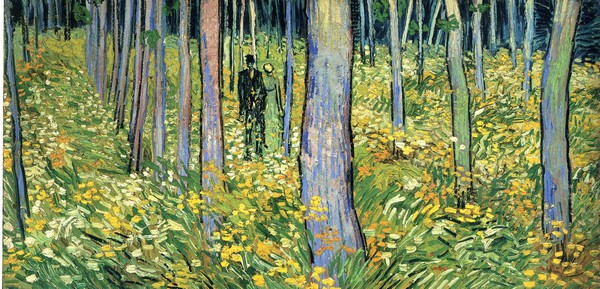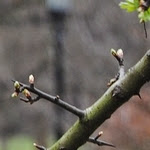
Robert Schumann was a grown man at his thirty when he started composing lieder at a stretch, masterpiece after masterpiece; Today, when discounted tickets in concerts are for under-35-olds, it may seem he was a young man, but no doubt he was a grown man. However, everyone has a past, Schumann, too, and today we're listening to one of the songs he wrote when he was a young man, at his seventeen or eighteen; It is not a masterpiece, but who needs it?
In 1827, Robert was officially studying law like his father, who had died recently, wanted. However, his aim was really different; he hesitated whether to become a musician or writer. At this point, he met Agnes Carus and fell in love with her. He was seventeen; she was twenty-five, a wife and mother of a family. In all likelihood, she didn't return his love, but we're not interested in this part of the story, but in Agnes' influence on Schumann as a composer.
They used to meet in soirées; she was a fine singer and needless to say, he was an attentive pianist willing to accompany her. And Robert had his first contact with Schubert's music and began to admire it because Agnes used to sing his lieder (she was a well-informed lady because, at that time, Schubert's songs were hardly known beyond Vienna). This discovery and love inspired Schumann; he realised that songs reunited his two great passions, word and music, and defined them as "the purely extracted quintessence of the spiritual life." He wrote his first four lieder during the summer of 1827 and eight more the next summer.
And then, any song until 1840. There are many reasons for this silence; The main one is probably that he began to learn music with Friedrich Wieck, and he devoted his efforts to the piano, but we can mention two more reasons. One is his disappointment when Agnes didn't understand the hidden message in his songs; The other, the opinion of a friend, a musician, when he sent him his songs. He said that he had been the victim of his youth, that it wasn't pointless to add so many ideas to a single song and that he should keep calm. And so he did.
Today we're listening to a song written by Schumann in June 1828, Kurzes Erwachen (Brief Awakening), which wasn't published until 1933. As I told before, it's not a masterpiece; it's a beautiful song written by a dilettante that gives us an idea of what was to come; For example, after three identical stanzas, Schumann added some variations at the fourth, to enhance the conclusion. The poem, by Justinus Kerner (a song cycle with this poet ended Schumann's Liederjahr brilliantly), tells us about a spring that lasts only as long as the song of a bird lasts. I would say that Frau Carus did understand the obvious message!
Just a few lines for a more prosaic matter. You probably realised that I made some changes on this website some weeks ago; The aim is to improve its usability and readability, especially in mobile devices. There's still some work to be done, not everything can be automated; I'll need some more time... If you find something that doesn't work properly, please let me know it.
And now, let's listen to Kurzes Erwachen, performed by Julien Prégardien and Eric Le Sage.
Ich bin im Mai gegangen
Und hab' es nicht gewußt,
Also von Schmerz befangen
Ist die erkrankte Brust.
Ein Vogel hat gesungen
Im jungbelaubten Wald,
Da ist ins Herz gedrungen
Mir seine Stimme bald.
Vom Aug' ist mir gefallen
Ein schwerer Tränentau,
Drauf sah den Mai ich wallen
Durch Erd' und Himmel blau.
Als Vogel ausgesungen
Flog er ins weite Land,
Und wie sein Lied verklungen,
Um mich der Mai verschwand.

















Comments powered by CComment